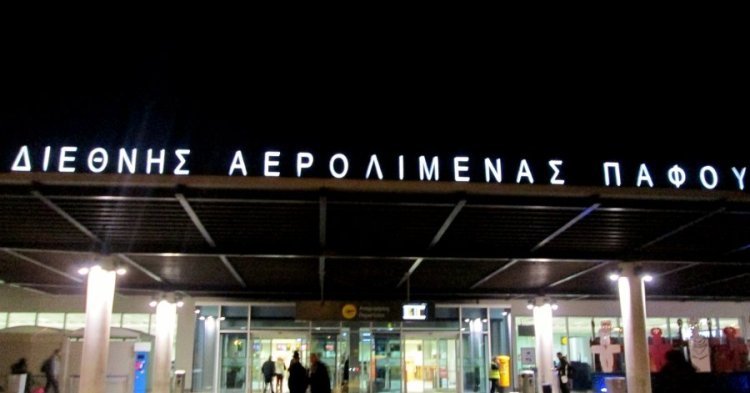Cyprus has a tradition of sending its youth abroad for their university education, primarily to the UK, Germany and Greece. The Easter period usually sees flights full of students returning to the island for the holidays, before coming back to sit exams in May and June. This year, however, universities had closed their campuses mid-term, moving teaching and examinations online.
Upon being told they could not return to their homeland, parents of students stuck overseas expressed their turmoil. Their complaints eventually prompted officials to start easing the restrictions. The government began to organise the progressive repatriation and quarantine of its returning citizens.
President Nicos Anastasiades officially announced the revision of the repatriation policy on April 8th. Beyond the initial priority given to vulnerable groups, students in the first year of their undergraduate studies, those doing foundation courses or staying in university halls were also eligible to board the first chartered flights. The statement came a week after the launch of the platform connect2cyprus on March 31st, which revealed that 16000 Cypriots had registered on the platform and more than 5000 expressed their interest for repatriation and preferred travel date in the given fortnightly windows.
Repatriation Arrangements
More details were made public in the days that followed. Transport Minister Karoussos told the Cyprus News Agency on April 13th that 2000 Cypriots would be repatriated every two weeks. This is to allow rotation in capacity in the quarantine structures and to monitor arrivals. Each flight would repatriate 120 people, for safety and hygiene reasons, reported local newspaper Phileléftheros. Upon landing, passengers would be subject for coronavirus testing and 14 days in quarantine in government facilities and hotels.
While the state is bearing the cost of quarantine accommodation, Karoussos announced on CyBC TV on April 16th that people would be asked to pay for their seat on repatriation flights: €320 plus taxes, from the UK and €150 from Greece, including 30 kg of luggage. This was the lowest possible price, the government claimed upon negotiating with airlines as most flights will return empty and operate at ⅔ capacity to comply with health measures. However, the government did sponsor the cost of the return of prioritised passengers on the first flights.
For some, repatriation can be a double-edged sword: the financial cost of the trip and the hassle of the mandated quarantine. Typically, return flights between the UK and Cyprus cost half the asked price. Adding on transfer costs to airports as public transport links are not operating, it becomes costly for students to repatriate and a potential burden on parents whose income may have been hit by the economic consequences of the crisis.
Additionally, most university students are taking their exams online during this period. Being placed in an unfamiliar environment without a reliable Internet connection is putting some people off, actually discouraged from returning. It remains the only feasible option for legal residents to return to the island as commercial flights are still banned.
Despite the inconveniences, the Cypriot government has successfully organised the return of those who asked for repatriation. Officials’ initial stance of closing its doors to compatriots quickly became unsustainable, which prompted a drastic overturn of the policy to meet its duty to its citizens. Imposing strict measures for travellers coming into the country did successfully lower the number of imported infections and Covid-19 deaths and put Cyprus on the path to become virus-free and a paradigm for others.
The Economic Reality Reverses Government Attitudes
As measures bear fruit and mitigate the impact of the spread of the virus, Cyprus is reevaluating its approach to the health crisis in order to keep its economy from sinking. Tourism represents a considerable share of employment and accounts for 13.1% of GDP (KPMG 2018 report). Tourism Deputy Minister Savvas Perdios told the CNA about its aim to reopen borders to tourists from certain regional markets by mid-June or early July. The high-contact nature of the industry means that restarting the provision of tourism services increases exposure to the virus. But strong pressure to keep afloat the sector which guarantees the livelihood of many, seems to outweigh the risk.
Repatriation flights will continue as long as the travel ban is in place, Karoussos announced to the CNA on May 4th. In Perdios’ scenario, students that remain abroad could potentially board Cyprus-bound flights alongside holiday goers, at a more competitive price. That would bring the repatriation scheme to an end, though the potential entry requirements, for residents and tourists alike, are still unknown.
In light of the urgency of the situation, the Cypriot government re-calibrated its focus and priorities. After mobilising to keep the island secure from imported cases and arranging for the safe return of its people overseas, the next challenge is to reignite the tourism industry taking the necessary preventive protections to avoid a second wave coming from abroad.
President Anastasiades has announced the lifting of the lockdown and reopening of beaches, ports and airports by early June. It remains to be seen how Cypriot tourism adapts to the health regulations and students return from abroad as they would usually for the summer months.

Follow the comments: |
|
